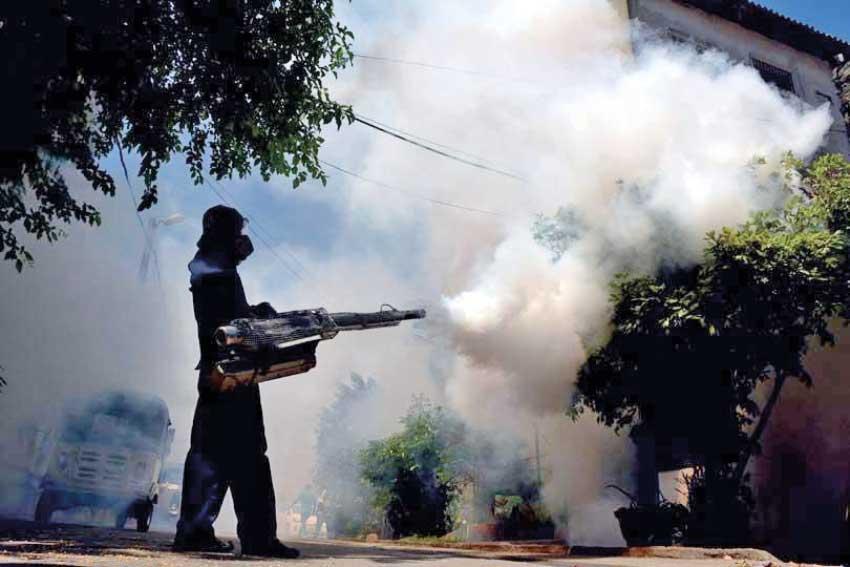26 Nov 2021 - {{hitsCtrl.values.hits}}

 Dengue is a serious viral disease transmitted by the bite of the mosquito Aedes aegypti and Aedes albopictus. The mosquito gets the virus by biting the infected people. Dengue mosquitoes breed in clear water collections like pots, flower vases, yoghurt cups, coconut cells, tyres, plant saucers, jars, drums, barrels, tanks. Then it rests indoors and in other dark places. The female mosquito lays her eggs in water containers and eggs; which can live for more than one year. Infected mosquitoes with dengue virus can spread the disease through these eggs which contains the virus. The resource person for today’s article is Dr Indika Ellawela, Chief Medical Officer of Health Piliyandala.
Dengue is a serious viral disease transmitted by the bite of the mosquito Aedes aegypti and Aedes albopictus. The mosquito gets the virus by biting the infected people. Dengue mosquitoes breed in clear water collections like pots, flower vases, yoghurt cups, coconut cells, tyres, plant saucers, jars, drums, barrels, tanks. Then it rests indoors and in other dark places. The female mosquito lays her eggs in water containers and eggs; which can live for more than one year. Infected mosquitoes with dengue virus can spread the disease through these eggs which contains the virus. The resource person for today’s article is Dr Indika Ellawela, Chief Medical Officer of Health Piliyandala.
The first symptoms of the disease occur about 5-7 days after an infected mosquito bites an individual.
Dengue fever can be caused by four types of Dengue Virus I, II, III, IV and it occurs in two forms
1)Dengue Fever
2)Dengue Haemorrhagic Fever symptoms of Dengue.
 Some of the symtoms are sudden onset of high fever, severe headache, pain behind the eyes vomiting, muscles and joints pain.
Some of the symtoms are sudden onset of high fever, severe headache, pain behind the eyes vomiting, muscles and joints pain.
Therefore it is very important to recognise early signs and symptoms.
Persons suspected of having Dengue must see a doctor at once. Dengue Haemorrhagic fever is a deadly disease and early diagnosis and treatment are very important. If fever lasts for more than two days do a full Blood Count which will make make Diagnosis easier. Dengue Antigen Test can be performed with the onset of a fever.
In Dengue Haemorrhagic fever bleeding and sometimes shock occurs. Symptoms of bleeding usually occur after 3-5 days of fever. In Dengue Haemorrhagic fever a shock additional symptoms like severe pain is experienced in the abdomen. Bleeding from the gums, or the skin bruising can occur. There is also frequent vomiting with blood and also black stools like coal tar. Pale cold skin, restlessness are signs of shock. When Dengue fever is suspected a patient should rest and should take adequate fluids (water, soup, fruits juice). To bring down the fever the only drug that is recommended is Paracetamol. The patient should be kept under a mosquito net.
Prevention is always better than cure. All effort of control should be directed against the mosquitoes. It is important to take control measures to destroy mosquito breeding places. Community empowerment for elimination of objects where water collects (eg. bottles, cups, drums, pots, tyres, tins, toys items) is important.
Attention should be given to roots of the gutters at homes.
Special attention should be given to working places, religious places and schools.
19 Nov 2024 11 minute ago
19 Nov 2024 1 hours ago
19 Nov 2024 2 hours ago
19 Nov 2024 2 hours ago
19 Nov 2024 3 hours ago